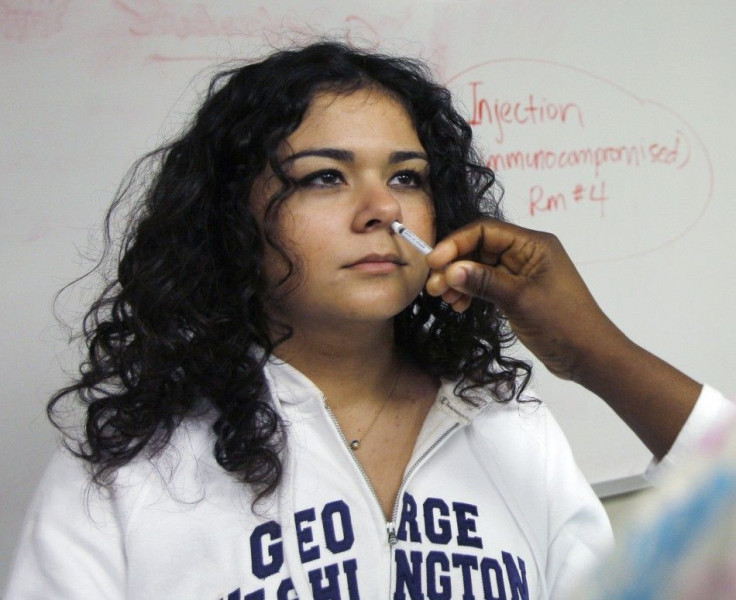COVID-19 Prevention: Scientists Developing Nasal Spray That Could Block The Coronavirus

KEY POINTS
- University of Pittsburgh researchers are developing a new nasal spray to prevent COVID-19
- Key ingredient Q-Griffithsin found effective against several coronaviruses
- Animal testing to start next month, human trials to follow
Researchers at the University of Pittsburgh in collaboration with Magee Women’s Research Institute are developing a nasal spray that they say can possibly prevent a coronavirus infection.
The active ingredient used in the nasal spray is a protein called Q-Griffithsin, which is extracted from algae and tobacco plants. The researchers believe that this protein molecule will bind to the coronavirus and prevent it from infecting healthy cells.
The protein molecule was originally developed to potentially prevent several other infections. Animal studies revealed that Q-Griffithsin worked effectively against MERS, SARS, hepatitis, Ebola, and several other viruses.
Interestingly, when tested in a laboratory using lung tissues, the researchers noted that the protein prevented the coronavirus from replicating.
“This indicated that it has good potential to be used as a topical antiviral. “Most of our activity for the last 10 years has been towards developing this product for anti-HIV activity, but we have dabbled in other viruses,” CBS Pittsburgh quoted Kenneth Palmer, the director of the Center for Predictive Medicine for Biodefense and Emerging Infectious Diseases at the University of Louisville.
How does the nasal spray work?
The spray works by blocking the COVID-19-causing coronavirus where it enters the body — the nose and mouth. The researchers are exploring it as an HIV-prevention product, which also has activity against several coronaviruses. The nasal spray neutralizes the virus before it enters the lungs and starts causing clinical complications. The researchers also highlighted the fact that the nasal spray has some properties, which makes it even superior to vaccines.
“One advantage it has over vaccines is its broad spectrum of activity against a number of different coronaviruses. The other benefit is for immunocompromised people, who aren’t successful with vaccines — so this is an alternative for them as well,” Next Pittsburgh quoted Dr. Lisa Rohan, the lead researcher of the nasal spray project.
The researchers will begin with animal testing next month and will conduct human trials following that. They are also investigating what the SARS-CoV-2 does to the lungs at a cellular level.
The primary goal is to ensure that the nasal spray is safe and well-tolerated. But they will also eventually check if it can prevent the virus from replicating inside the host cells.
© Copyright IBTimes 2025. All rights reserved.






















